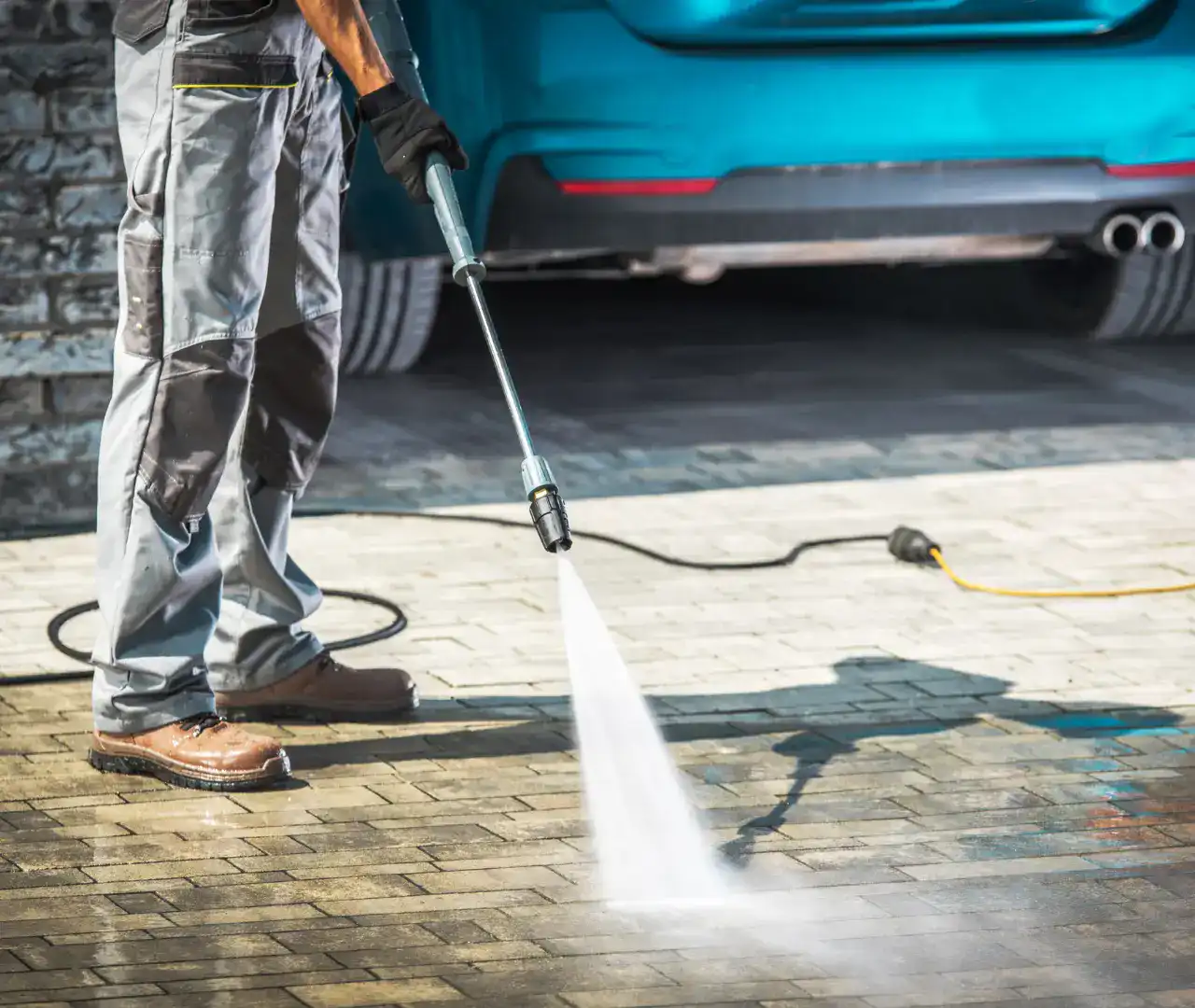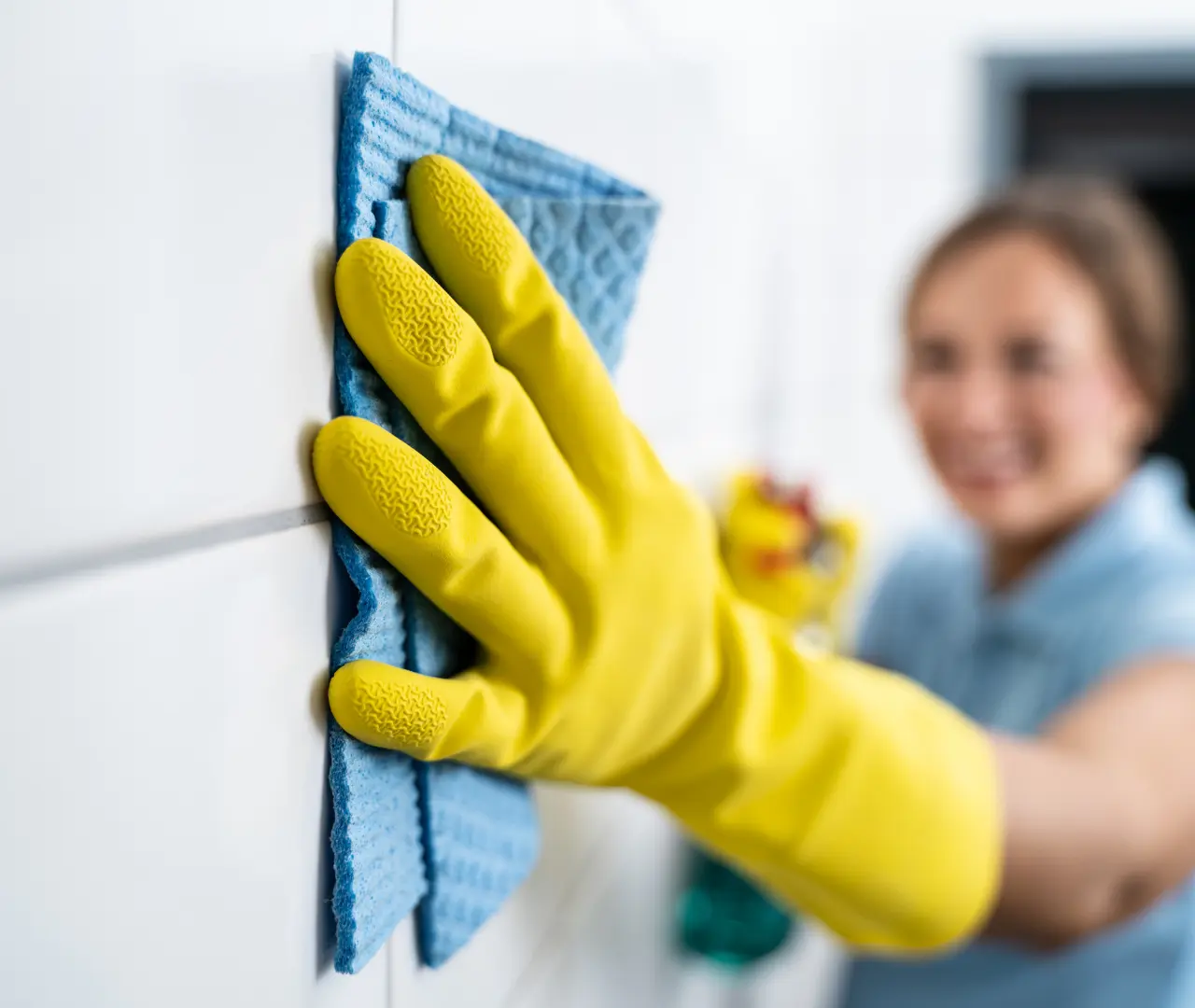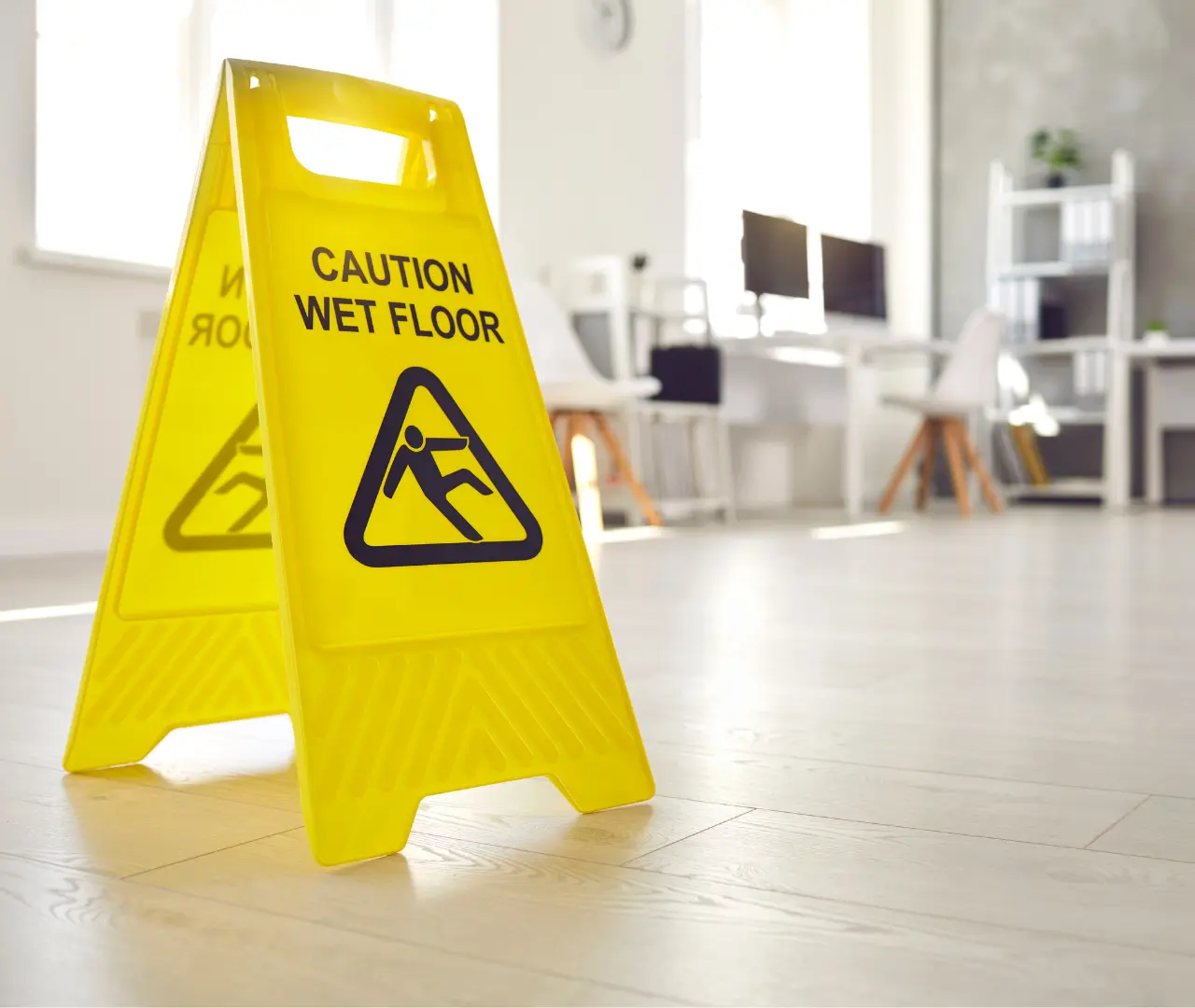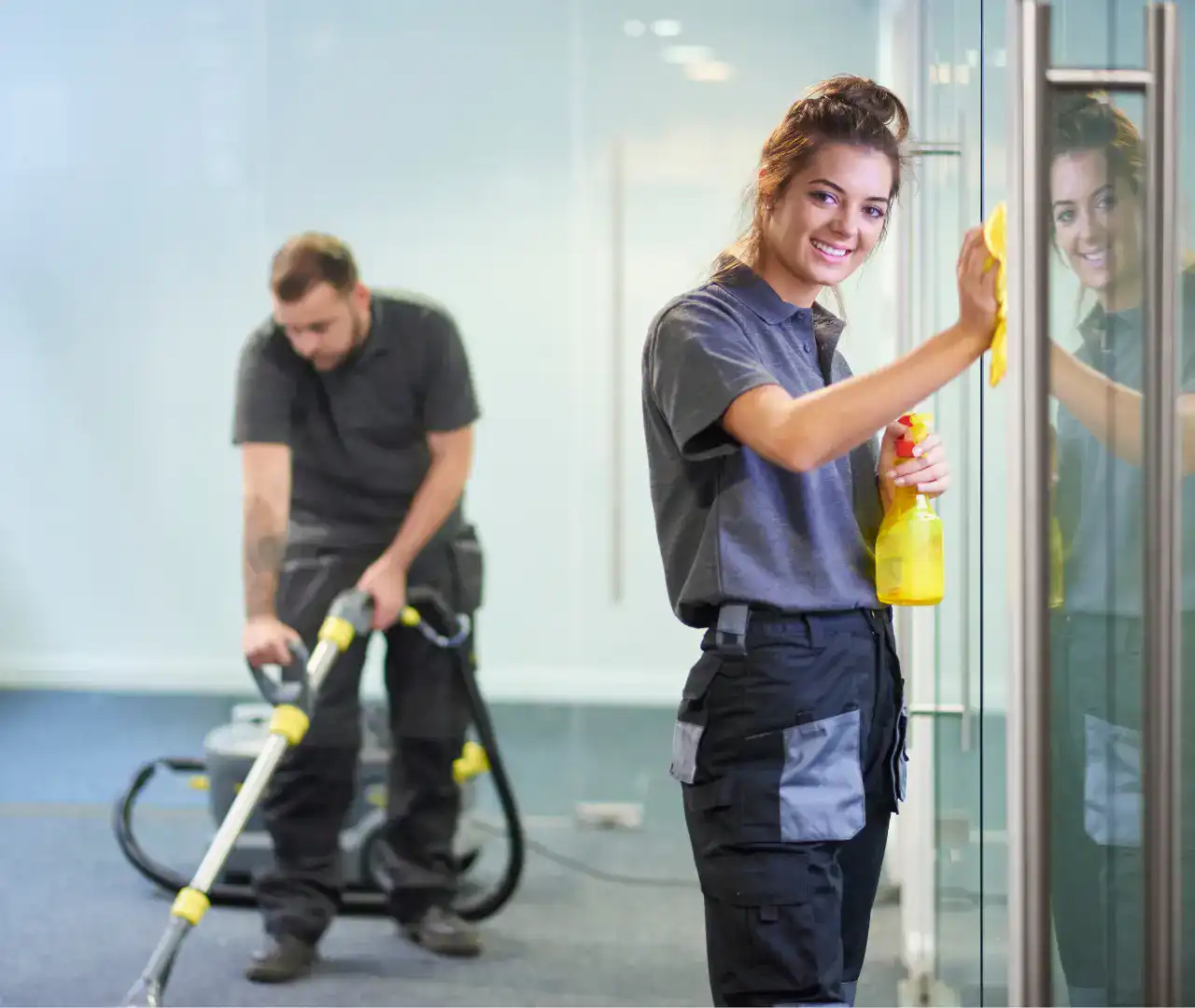Why Cleaner-Owners Outperform Employees Every Time (And What This Means for Your Facility)

The most expensive words in commercial cleaning are "that's not my job."
I've heard them countless times—from employees who punch time clocks but don't think beyond their assigned tasks. Who walk past problems they didn't create but could easily solve. Who deliver minimum acceptable effort because they're paid the same whether they provide adequate or exceptional service.
Here's what changed everything for me: the day I watched an independent cleaner spend an extra hour addressing a problem that wasn't in their contract scope, simply because they cared about the client's success and knew their reputation was on the line.
That's when I realised the fundamental flaw in how most cleaning companies operate. Traditional employment structures in cleaning create the wrong incentives for everyone involved. Employees focus on compliance rather than results. Managers focus on oversight rather than support. Clients get adequate service instead of exceptional partnership.
But what if cleaning professionals had a direct stake in client success? What if exceptional service directly benefited the people providing it? What if we replaced hierarchical management with collaborative ownership?
This isn't theoretical. It's exactly how CLNRZ's cleaner-owner program works—and why it consistently delivers results that traditional employment models cannot match.
The Employee Mindset vs. The Owner Mindset
The difference between employees and owners isn't about work ethic or character—it's about structure and incentives. When you change the incentives, you change the outcomes.
Employee Structure: Compliance-Focused
- Compensation: Fixed hourly wage regardless of quality or client satisfaction
- Mindset: "Complete assigned tasks within designated time"
- Problem-solving: "Report issues to supervisor"
- Client relationship: "Follow instructions from management"
- Long-term thinking: "Show up, get paid, go home"
Owner Structure: Results-Focused
- Compensation: Direct stake in client satisfaction and business success
- Mindset: "Deliver exceptional results that build lasting relationships"
- Problem-solving: "Identify and solve issues proactively"
- Client relationship: "Build trust through consistent excellence"
- Long-term thinking: "Invest in relationships that grow over time"
The difference in outcomes is dramatic. Cleaner-owners don't just clean better—they think differently about their work, their clients, and their own professional development.
How the CLNRZ Cleaner-Owner Program Actually Works
Our cleaner-owner program isn't just profit-sharing or employee stock options—it's a fundamental restructuring of how cleaning professionals relate to their work and clients.
Phase 1: Professional Excellence (Months 1-6)
New network members start by demonstrating consistent quality service:
- Comprehensive training on CLNRZ standards and systems
- Digital documentation of all services with photo verification
- Client feedback collection and performance measurement
- Peer mentoring from experienced network members
Phase 2: Ownership Transition (Months 6-18)
High-performing cleaners begin earning ownership stakes:
- Profit-sharing based on client satisfaction and service quality
- Increased autonomy in client relationship management
- Opportunities to mentor newer network members
- Business development training and support
Phase 3: Network Leadership (18+ Months)
Established cleaner-owners can pursue leadership roles:
- Training and quality assurance responsibilities
- Client acquisition and relationship development
- Operational improvements and innovation contributions
- Equity growth based on network expansion and success
The key insight: Ownership isn't a reward for good performance—it's a structure that makes good performance economically rational.
Why This Model Delivers Superior Results
The cleaner-owner approach creates advantages that traditional employment simply cannot replicate:
Proactive Problem-Solving
When cleaner-owners encounter facility issues—broken fixtures, maintenance needs, security concerns—they don't wait for instructions. They communicate directly with clients and take appropriate action because their reputation and compensation depend on client satisfaction.
Example: A traditional employee might notice a loose handrail and report it to their supervisor, who might mention it to the client days later. A cleaner-owner photographs the issue, alerts the client immediately, and offers to coordinate with maintenance or assist with repairs.
Client Relationship Investment
Cleaner-owners understand that client retention directly impacts their long-term earnings. This creates natural incentives for:
- Learning client preferences and adapting service accordingly
- Communicating proactively about schedule changes or special needs
- Identifying opportunities for additional services or improvements
- Building trust through consistent reliability and quality
Continuous Improvement Motivation
Because cleaner-owners benefit directly from client satisfaction and network growth, they're naturally motivated to:
- Develop new skills and specialisations that increase value
- Adopt new technologies and techniques that improve efficiency
- Share knowledge with other network members to strengthen collective capabilities
- Innovate solutions to common challenges
Quality Self-Regulation
Rather than requiring external supervision, cleaner-owners monitor their own performance because poor quality directly hurts their earnings and reputation within the network.
The Network Effect: Collective Success Through Individual Ownership
The most powerful aspect of our cleaner-owner program isn't individual incentives—it's how personal ownership stakes create collaborative community.
Peer Accountability That Actually Works
When network members have ownership stakes in collective success, they naturally hold each other accountable for quality standards. Poor performance by one member reflects on the entire network, so peer coaching and support become self-reinforcing.
Knowledge Sharing That Accelerates Excellence
Cleaner-owners share techniques, solutions, and client management strategies because network success benefits everyone. This collaborative learning accelerates skill development far beyond what individual training programs achieve.
Collective Problem-Solving for Complex Challenges
When cleaner-owners encounter unusual cleaning situations or client challenges, they can tap into the collective expertise of the entire network. This shared knowledge base creates capabilities that individual operators rarely develop.
Mutual Support During Growth or Challenges
Network members can cover for each other during vacations, emergencies, or capacity constraints. This mutual support system provides reliability for clients while offering security and flexibility for cleaner-owners.
What Property Managers Actually Experience
The theoretical benefits of cleaner-ownership translate into practical advantages that property managers notice immediately:
Reduced Management Burden
Cleaner-owners manage themselves and their client relationships proactively. Instead of supervising cleaning staff, property managers work with professional partners who take ownership of outcomes.
Improved Communication and Responsiveness
When issues arise, cleaner-owners respond quickly and professionally because their reputation and earnings depend on client satisfaction. No more waiting for supervisors to relay messages or approve solutions.
Consistent Quality Without Constant Oversight
The ownership structure creates internal motivation for excellence that external supervision cannot replicate. Quality becomes self-sustaining rather than management-dependent.
Innovative Solutions and Value-Added Services
Cleaner-owners actively look for ways to improve their service and add value because client success directly benefits them. This entrepreneurial mindset leads to better outcomes and often cost savings.
Long-Term Relationship Stability
High cleaner-owner retention means property managers work with the same skilled professionals over years, building institutional knowledge and trust that temporary employees never develop.
The Ontario Reg. 480/24 Example
Consider how different employment structures handle regulatory compliance like Ontario's new washroom cleaning documentation requirements:
Traditional Employee Approach:
- Management creates compliance procedures and trains staff
- Employees follow procedures because they're required to
- Quality depends on ongoing supervision and enforcement
- Documentation becomes bureaucratic burden rather than value-add
Cleaner-Owner Approach:
- Network members understand compliance as competitive advantage
- Documentation becomes natural part of quality service delivery
- Cleaner-owners proactively ensure clients exceed regulatory requirements
- Compliance creates additional value proposition for client relationships
The difference: Employees comply because they have to. Cleaner-owners excel because it benefits them to do so.
Beyond Cleaning: A Model for Service Industry Transformation
The cleaner-owner program isn't just about improving cleaning services—it's about demonstrating that service industries can create dignity, opportunity, and excellence through ownership structures rather than traditional employment hierarchies.
What we're proving:
- Service professionals can build sustainable businesses within collaborative networks
- Clients receive superior results when service providers have ownership stakes
- Economic success and professional dignity aren't mutually exclusive
- Technology can support human excellence rather than replacing it
This model has implications far beyond commercial cleaning. Any service industry struggling with retention, quality consistency, and client satisfaction could benefit from transitioning from employment hierarchies to ownership networks.
The Choice Every Property Manager Faces
You can continue working with cleaning services that rely on external management to enforce quality standards, constant supervision to ensure reliability, and employee turnover that destroys institutional knowledge.
Or you can partner with cleaner-owners who have structural incentives for excellence, direct stakes in your satisfaction, and professional communities that support continuous improvement.
The difference isn't just better cleaning—it's a fundamentally different relationship where your facility's success directly aligns with your cleaning professional's success.
Ready to experience the difference that cleaner-owners make? Contact CLNRZ to discover how our network of ownership-minded professionals transforms commercial cleaning from a management burden into a strategic partnership.
CLNRZ serves commercial properties throughout Ontario with cleaner-owners who have genuine stakes in your success, not just paychecks from showing up.



